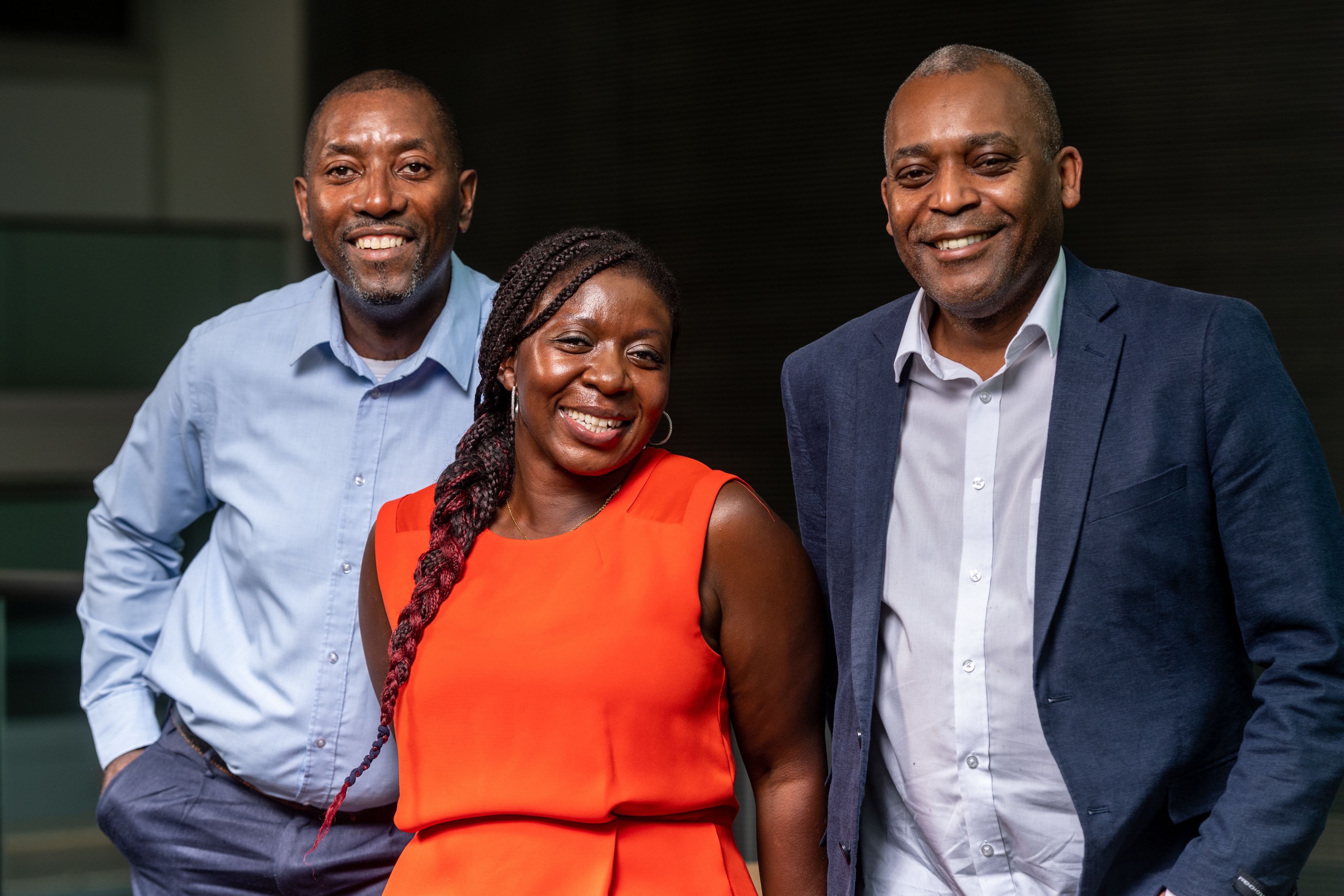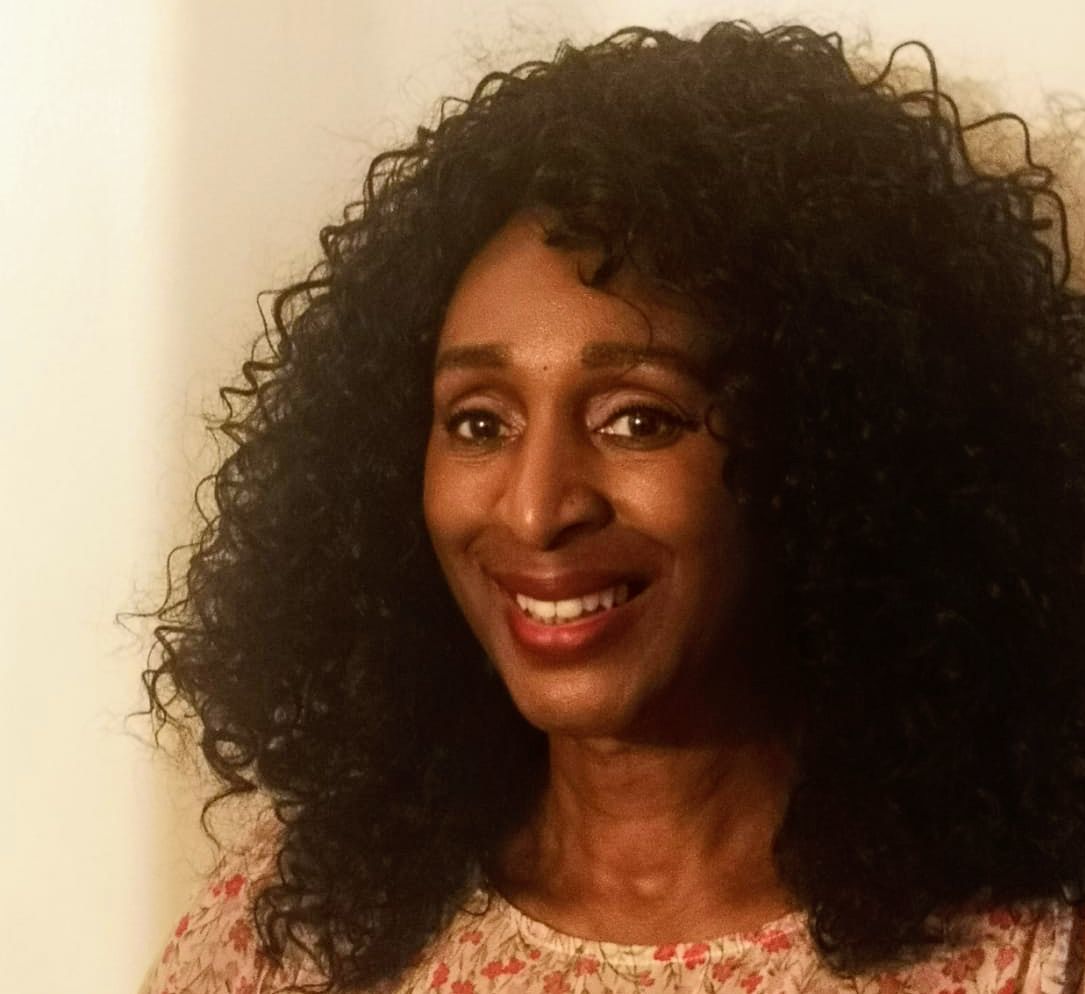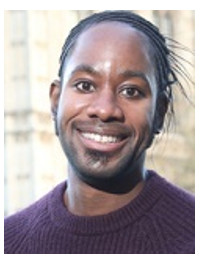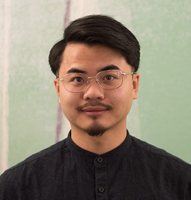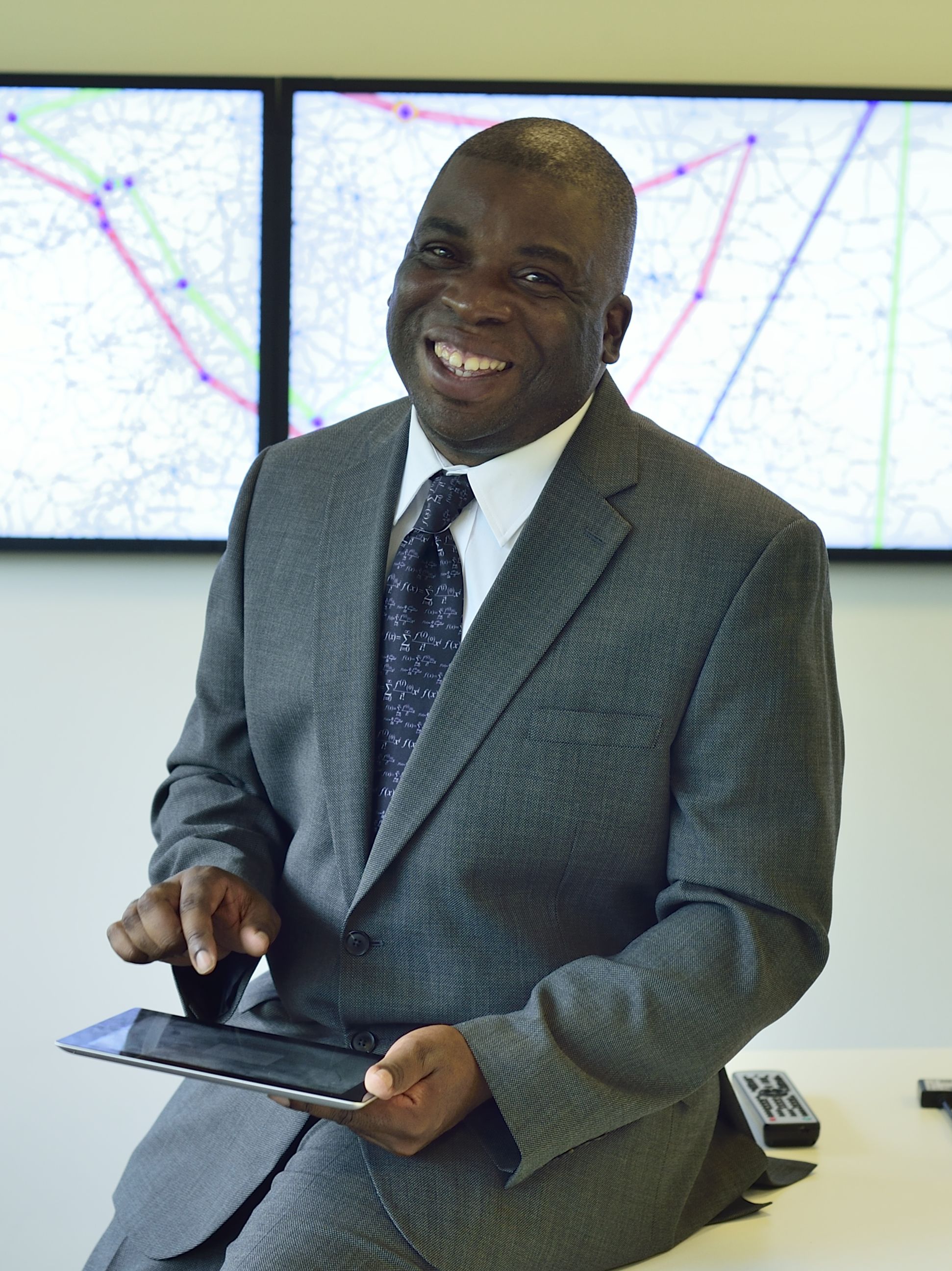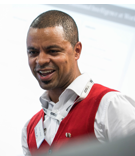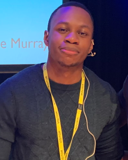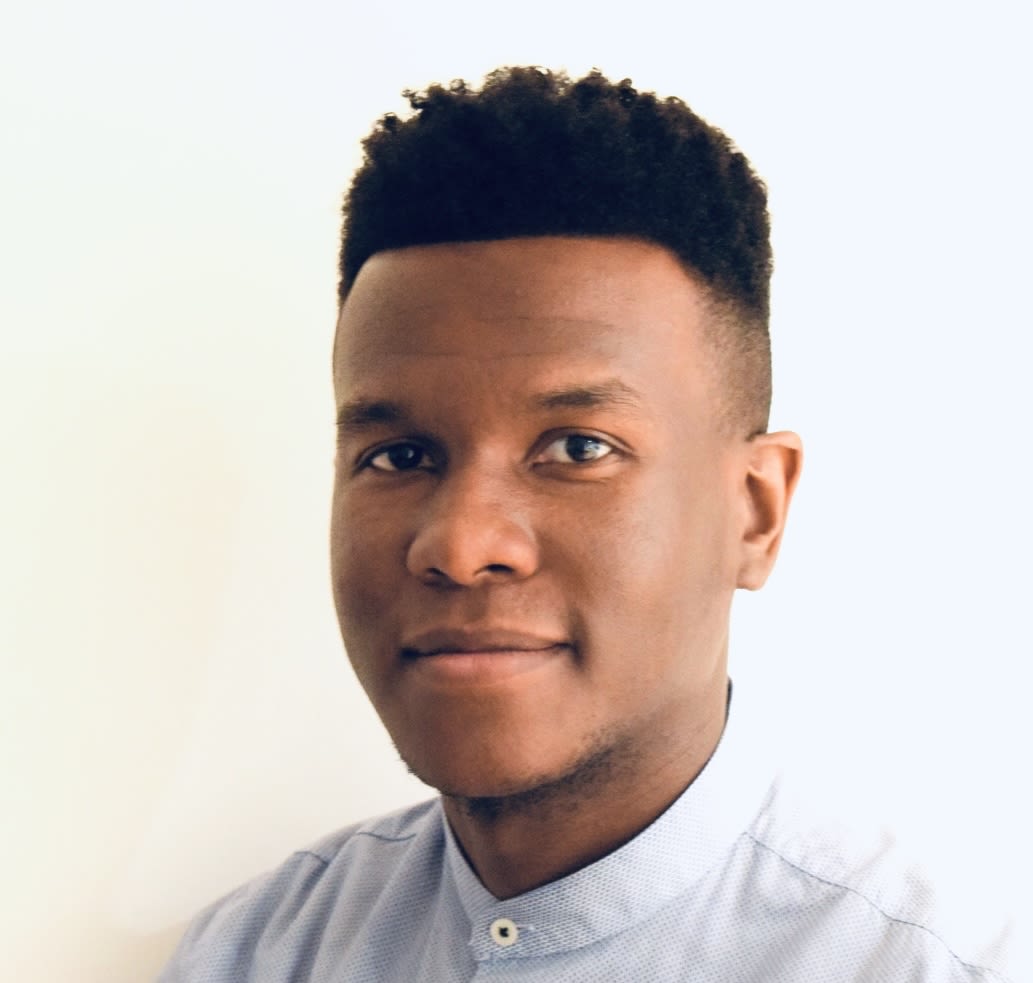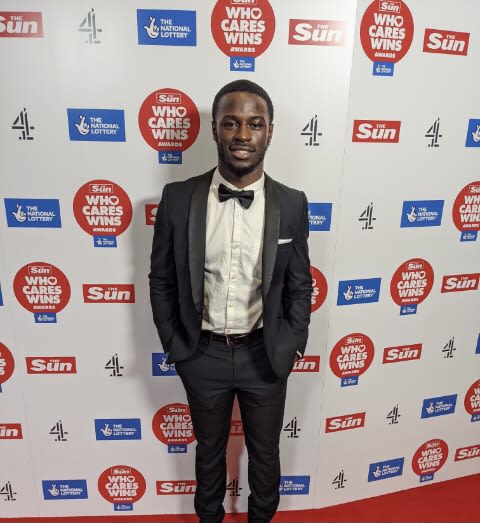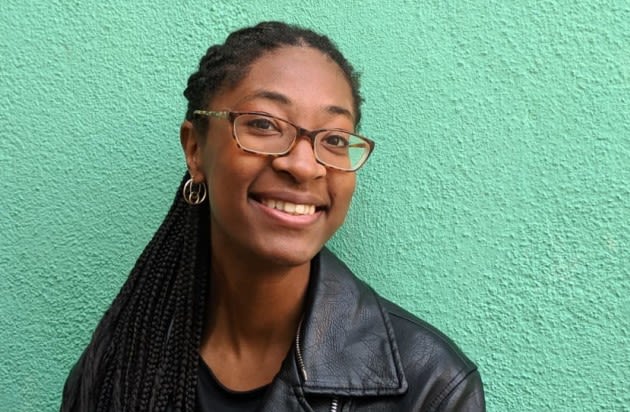Candid conversations
on identity, representation and lived experiences
Celebrating 100 guests on Imperial As One's
weekly interview series, Belonging
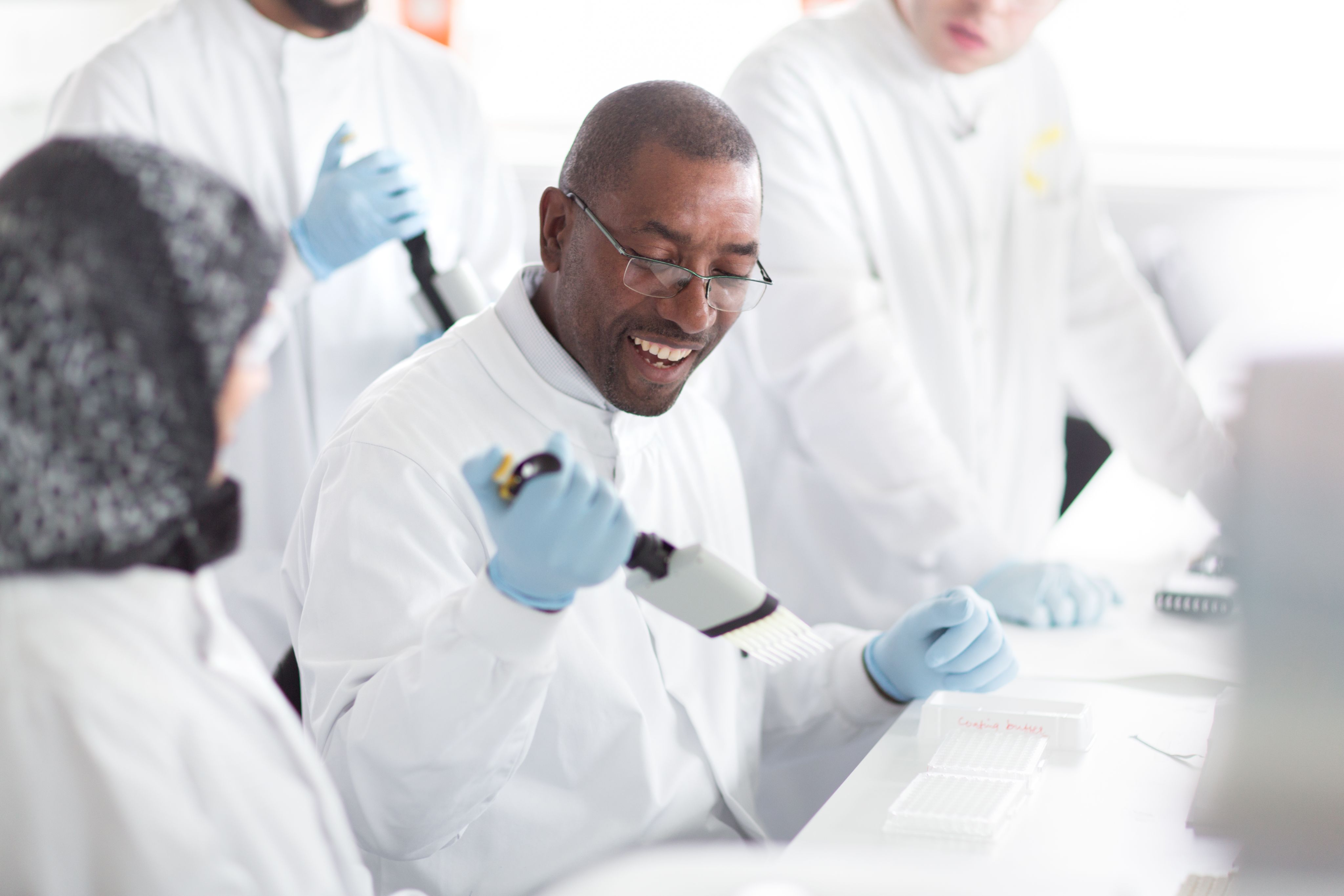
Established during the pandemic, the Belonging interview series was born out of the need to see more representation of minority ethnic communities.
Behind the series from the College’s race equality staff network Imperial As One (IAO) is Dr Wayne Mitchell, Senior Teaching Fellow at the Department of Immunology and Inflammation and host of Belonging.
Chairs of IAO: Dr Wayne Mitchell, Dr Sarah Essilfie-Quaye and Desmond Samuel (L-R)
Chairs of IAO: Dr Wayne Mitchell, Dr Sarah Essilfie-Quaye and Desmond Samuel (L-R)
“I was working on my Master’s project which was looking at the experiences of Black students at Imperial and their sense of belonging and identity,” Dr Mitchell says. “In the discussion students expressed that they didn’t feel like they were represented.”
This sentiment resonated with Dr Mitchell who recalls rarely seeing Black lecturers while he was at university: “It was rare to see Black academics and hearing the same views from students made me realised that something had to change.”
With staff and students at home due to the COVID-19 pandemic, Dr Mitchell and IAO committee members launched an online weekly interview series which would bring to light the lived experiences of people from minority ethnic backgrounds.
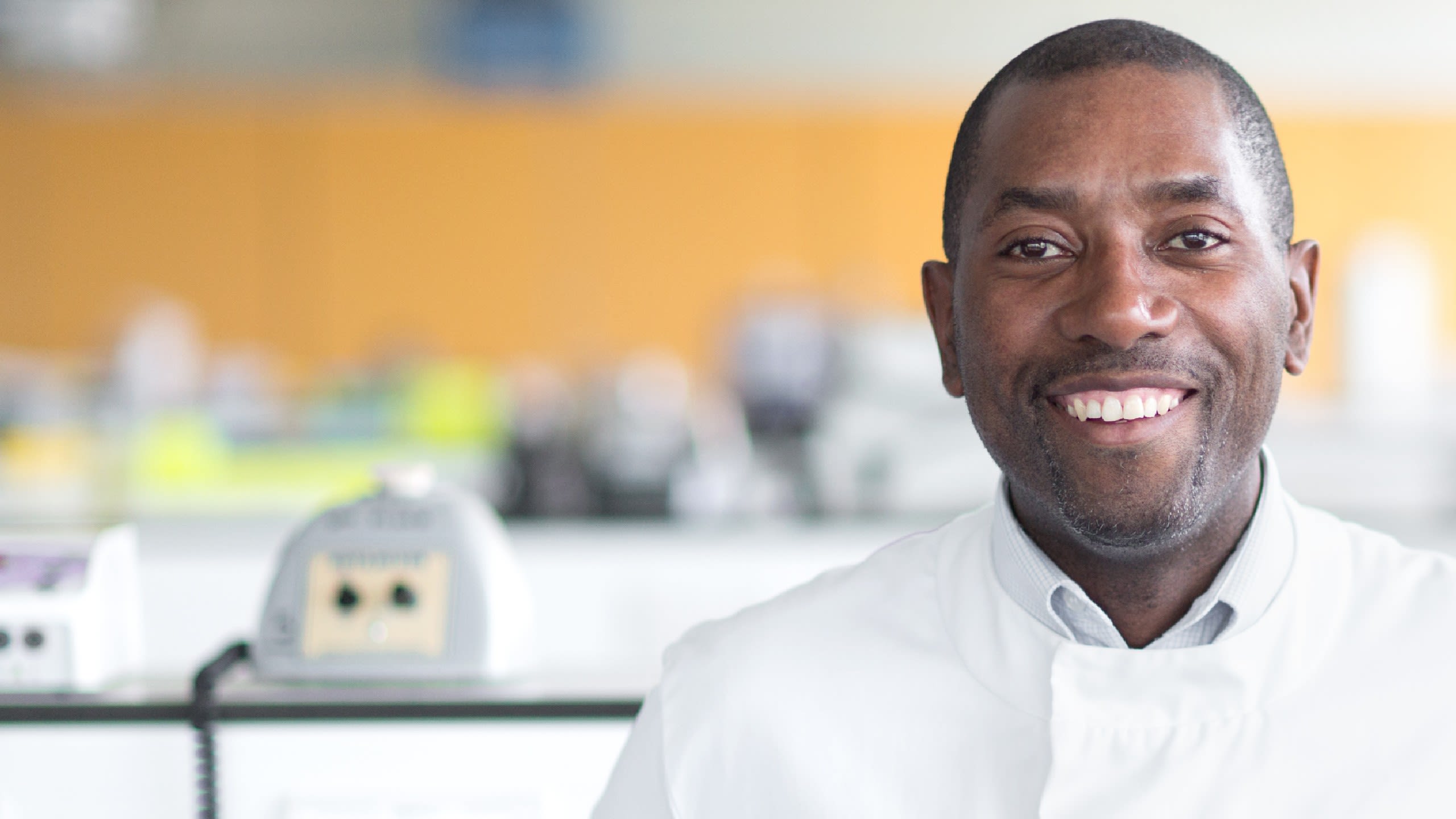
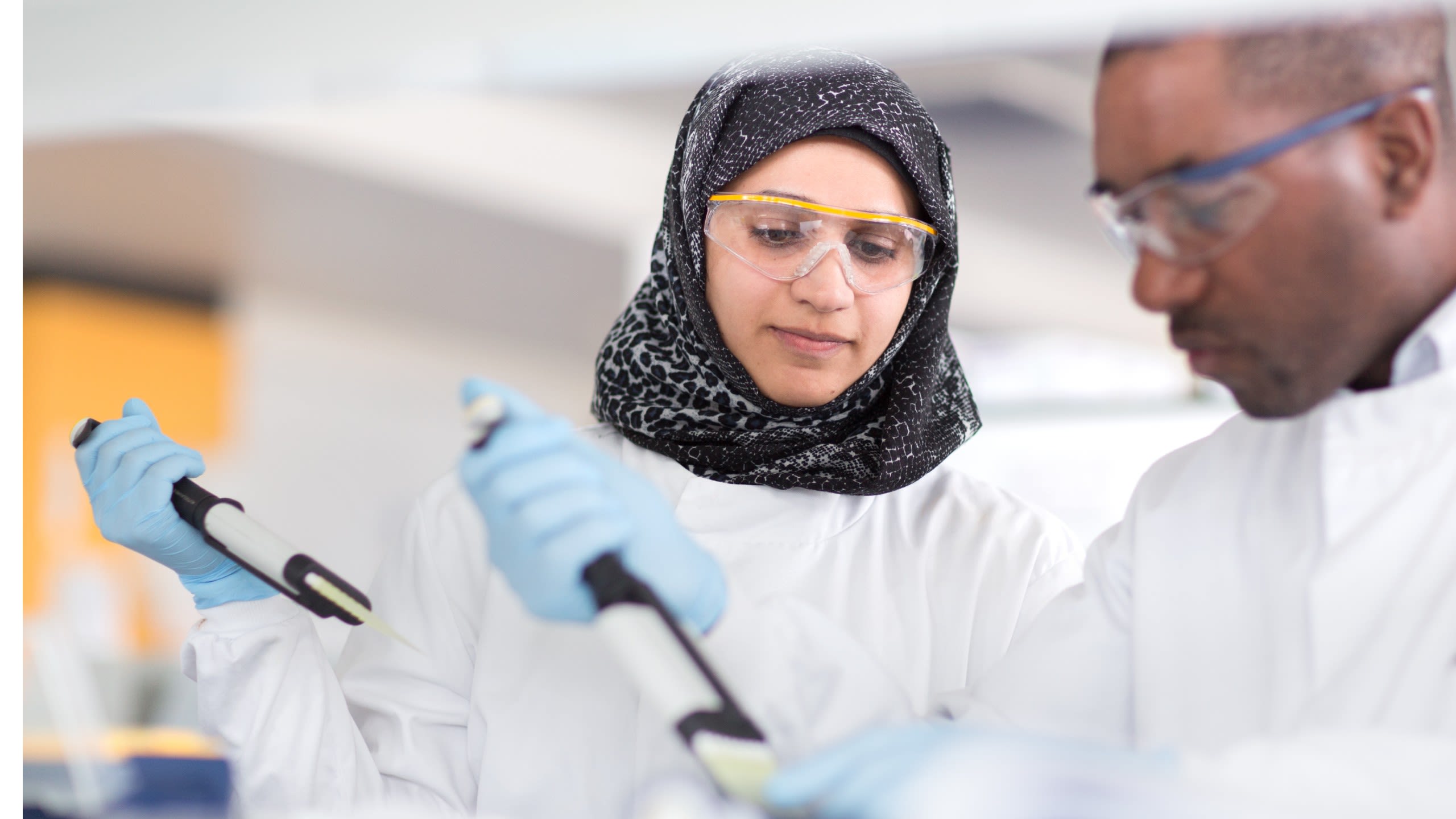
Stories to learn from
The series kicked off with an interview with Billy Ng, a successful solicitor in London originating from Hong Kong who helps minority ethnic students overcome barriers in the legal sector.
Belonging began at a time of significant social and political events. It became clear that people from Black, Asian and minority ethnic backgrounds were being disproportionately affected by COVID-19, and the murder of George Floyd which gave rise to the Black Lives Matter movement.
With racial discrimination and the inequalities experienced by Black and minority ethnic communities more apparent than ever, the experiences shared in Belonging became increasingly important and attracted more interest.
With the milestone of 100 guests approaching, Dr Mitchell is grateful to the Belonging interviewees: “I'm humbled that people have trusted me enough to come on the platform and share their life experiences.”
Key moments in the
Belonging series
As the Belonging series approaches 100 guests,
Dr Mitchell reflects on some of the key moments
from the interviews so far.
Maisie Barrett
Maisie Barrett
Dr Jason Arday
Dr Jason Arday
Jinhao Xie
Jinhao Xie
Most moving - Maisie Barrett
“Maisie is an author and contributor to the BBC1 documentary, ‘Subnormal: A British Scandal’. She was a part of the Windrush generation. Maisie’s interview resonated with me as when she was 8 years-old, she was labelled ‘educationally subnormal’. This happened to many Black children in the 1960s and 70s. She speaks about the impact this had on her such as her lack of access to education.
“What I really liked about her story was that despite people putting labels on her, she wasn't ready to accept any of them. Maisie went on her own quest of self-improvement and has now authored a couple of books. She didn't allow the injustice she experienced to prevent her from trying to do the best that she could do.
“The reason why this story touched me so much was because when I was 6 or 7 I was almost sent to a special school. I know plenty of people who went through the same experience. If I didn't have somebody who could advocate on my behalf, I would not be where I am now.”
Most inspirational - Dr Jason Arday
“Jason struggles with spatial awareness issues. He didn’t speak until he was 10 years-old and he didn’t learn to read till he was 18. Now he is a Professor of Sociology of Education at the University of Glasgow.
“His mother saw a gift in him where other people didn’t. She never stopped encouraging him. That confidence helped him hugely. Within the space of 10 years, he went from not being able to read or write, to having a PhD and becoming a lecturer. It’s quite amazing.”
Most poetic - Jinhao Xie
“Jinhao Xie is an award-winning poet based in the UK, from Chengdu. He identifies as queer and studies at Kent Business School.
“For Jinhao, poetry has been an important way of expressing his identity. He wrote a poem called ‘Nihao’ which translates as ‘hello’ in English. It’s about the meaning of language.
“It’s a great episode as he reads some of his poetry in the interview as well.”
Most famous – Professor Nira Chamberlain OBE
“Nira Chamberlain is a mathematician based in Birmingham, and he has just been made a Professor at Loughborough University. He produced the Black Heroes of Mathematics, a conference showcasing amazing Black mathematicians.
“Nira explains how people told him he could never become a mathematician. He rose above this even though at times he felt dejected. Just this year, he received an OBE for services to mathematical sciences.”
Most funny – Rob Neil
“Rob is the director of Krystal Alliance and a former civil servant. He was very honest and open in his interview. He speaks about his love for QPR, his favourite football team, and his attempts to become a professional footballer.
“Eventually Rob ended up working for the Ministry of Justice, which is very different to his dreams of becoming a footballer!
“He explains his story with such a humour, it’s hard not to laugh during this interview.”
Dr Nira Chamberlain OBE
Dr Nira Chamberlain OBE
Rob Neil
Rob Neil
Rising stars of the future
“Belonging is an inter-generational platform where established figures and emerging talent share their lived experiences,” explains Dr Mitchell. “We’ve had a number of people join us on Belonging who have very bright futures ahead.”
De-Shaine Murray
"De-Shaine is an inspiration in what he does. He’s one of 30 Black Afro-Caribbean people who were awarded grant funding for a PhD from Leading Routes. He’s now studying his PhD in neurotechnology here at Imperial and has started a postdoctoral fellowship at Yale University. He located all the awardees of Leading Routes funding and set up a support group. He also created Imperial’s Black Doctoral Network."
Garrick Wilson
“Garrick is a training manager at Cancer Research UK Imperial Centre. In his interview we hear about the potential his grandma saw in him. From a science perspective, Garrick articulated COVID research quite exceptionally.”
Jemmar Samuels
“Jemmar is a sociology student at Brunel University who won the inaugural Content for Change Children’s BAFTA for the documentary What do you mean I can’t change the world? She talks about moving to Jamaica from the UK as a child and her return.”
Kwaku Duah-Asante
“Kwaku is a fifth-year medical student at Imperial. He works with Street Doctors and is inspiring young Black people to achieve to the best of their ability. He’s very inspirational and will go on to do great things.”
Dr Madina Wane
“Madina received her PhD in immunology from our Department of Life Sciences. In her episode, she explores finding belonging in unfamiliar spaces. She’s done a lot of work to improve the equality for students from Black and minority ethnic backgrounds.”
De-Shaine Murray
De-Shaine Murray
Garrick Wilson
Garrick Wilson
Kwaku Duah-Asante
Kwaku Duah-Asante
Dr Madina Wade
Dr Madina Wade
